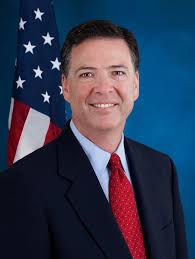The Legacy and Controversies of James Comey

Introduction
James Comey, a prominent figure in American law enforcement and politics, has become known for his controversial tenure as the Director of the Federal Bureau of Investigation (FBI). Appointed by President Barack Obama in 2013 and later dismissed by President Donald Trump in 2017, Comey’s actions and decisions have sparked significant debate about the integrity of governmental institutions and the political landscape in the United States.
Comey’s Tenure at the FBI
During his FBI tenure, Comey oversaw major investigations, particularly those pertaining to cybercrime and terrorism. However, the investigation into then-presidential candidate Hillary Clinton’s use of a private email server became a focal point of his directorship. In July 2016, Comey publicly cleared Clinton of wrongdoing, a decision that drew both criticism and praise. Comey’s testimony in front of Congress later that year further entrenched him in the political debate, as he noted the FBI’s ongoing investigation into Russian interference in the 2016 election.
Controversial Dismissal
Comey’s firing in May 2017 became one of the most discussed events in recent American political history. His removal was linked to his handling of the Clinton investigation and the subsequent Russia inquiry. This led to widespread speculation about the motivations behind his dismissal and shaping perceptions around a potential cover-up. Following his firing, Comey became a whistleblower of sorts, sharing his version of events in a book titled “A Higher Loyalty,” which criticises the Trump administration and defends the FBI’s integrity.
Impact on Public Perception
Comey’s actions have significantly impacted public trust in the FBI and government institutions as a whole. While some see him as a principled leader striving for justice, others critique him as partisan and self-serving. His influence has ushered in debates about accountability and transparency in law enforcement agencies, igniting discussions that resonate within society and the political arena.
Conclusion
The controversies surrounding James Comey highlight the complexities of law enforcement’s role within a democratic society. Whether viewed as a hero or a villain, Comey’s narrative continues to evoke passion and disagreement across the political spectrum. As the fallout from his actions persists, it is essential for the public to remain engaged in discussions about governmental integrity and the implications for future governance. The legacy of James Comey will likely endure as a cautionary tale about the intertwining of law, politics, and personal decisions.
